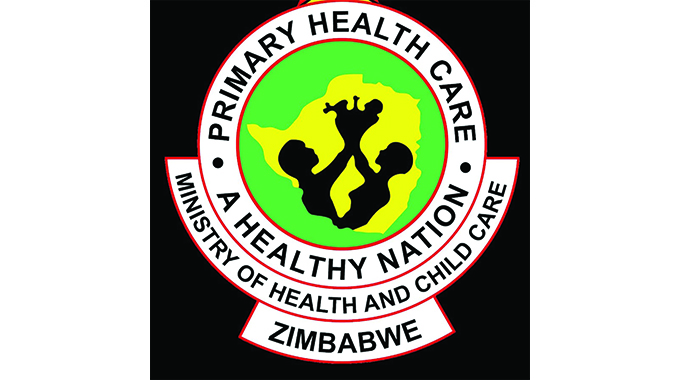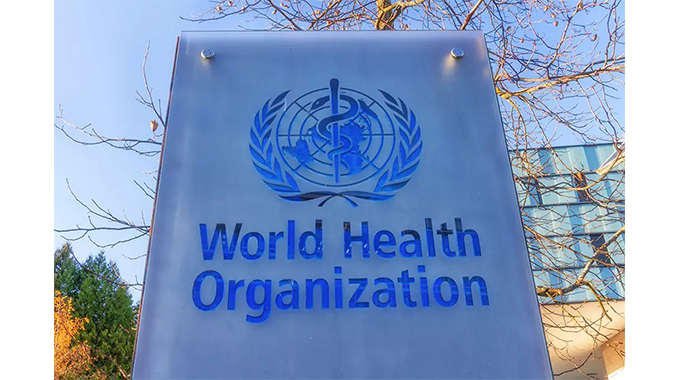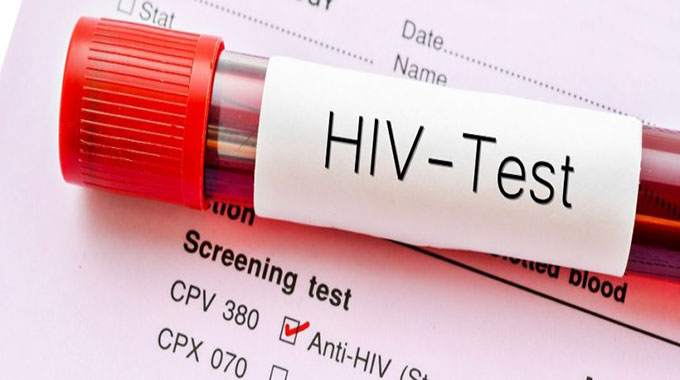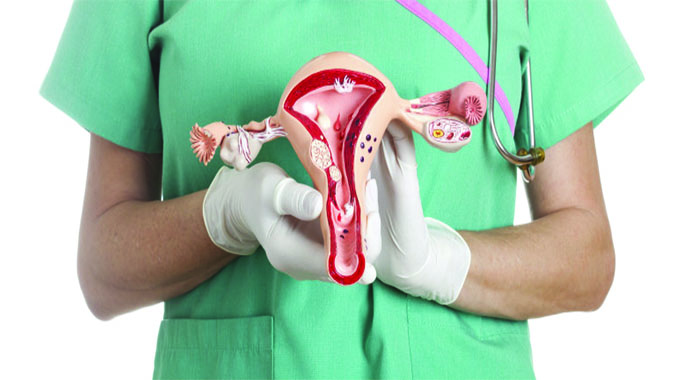
The Sunday News

Tendai Rupapa in Moscow, Russia
RUSSIA has undertaken to help facilitate the development of Zimbabwe’s health sector through enhanced co-operation in areas ranging from development of critical skills, treatment and management of communicable and non-communicable diseases and supply of high-tech medical equipment and pharmaceuticals.
This came out of meetings between senior Russian officials including the country’s Health Minister Honourable Mikhail Murashko in Moscow and the country’s health ambassador First Lady Dr Auxillia Mnangagwa who was accompanied by Dr Stephen Banda, chief director of policy planning, health, informatics and monitoring and evaluation, Ms Venus Mushininga, programme manager non-communicable diseases in the Ministry of Health and Child Care and Mrs Rebecca Kaviya, director legal services in the Ministry of Higher and Tertiary Education, Innovation, Science and Technology Development.

First Lady Dr Auxillia Mnangagwa joins Russian traditional performers and dancers on the dance floor after her meeting with Speaker of the Russian Federation Council of the Federal Assembly Madame Valentina Matvienko in Moscow, Russia
The delegation had been invited by the health minister to his offices to discuss health issues.
The First Lady told the officials that she was not a medical doctor but advocates and brings awareness to communities about all leading communicable and non-communicable diseases through the Ministry of Health and Child Care.
She underscored the need for greater co-operation between the two countries’ Ministries of Health.
Honourable Mikhail Murashko paid tribute to the First Lady for helping with management of communicable and non-communicable diseases in Zimbabwe through her Angel of Hope Foundation.
The minister emphasised the need to heighten co-operation with Zimbabwe and asked the delegation to draw up a priority list of pharmaceuticals and medical equipment it required for consideration.
Dr Mnangagwa’s delegation was also invited to visit the National Medical Radiological Centre of Moscow where Dr Andrey Kaprin, the director-general and chief oncologist, expressed his centre’s willingness to work with health specialists in Zimbabwe.

First Lady Dr Auxillia Mnangagwa is welcomed by the Speaker of the Russian Federation Council of the Federal Assembly Madame Valentina Matvienko in Moscow, Russia
The Health Minister said: “We praise your Angel of Hope Foundation for what it is doing to fight communicable and non-communicable diseases in Zimbabwe. This is highly commendable,” he said.
He discussed with the delegation potential areas of co-operation between Zimbabwe and Russia in the field of diagnostics and treatment of oncological diseases, production of medical equipment and medicines, medical tourism and education.
The minister said his country expected to finalise a bilateral co-operation agreement with Zimbabwe by early next year to enhance co-operation in education.
He said there were 146 Zimbabwean students studying at Russian tertiary institutions.
“We also have postgraduate programmes in oncology, surgery, paediatrics, obstetrics, cardiology and gynaecology. We are ready to invite specialists from Zimbabwe for training and internships. Several medical institutions have expressed interest in hosting trainees from Zimbabwe and the Russian Federation is keen to strengthen the area of health tourism,” he said.

First Lady Dr Auxillia Mnangagwa shares a lighter moment with Speaker of the Russian Federation Council of the Federal Assembly Madame Valentina Matvienko about how Zimbabwean women ululate when celebrating during the handover of goods for Angel of Hope Foundation in Moscow, Russia on Monday
He added: “In the area of cancer treatment, the Russian Federation has over 140 registered medicines and more in the pipeline. In terms of cervical cancer screening, the Russian Federation has well developed medical devices for HPV testing. A locally produced HPV vaccine is at the trial stage and there is locally produced equipment that is used for cancer care. The Russian Federation produces radiation and radiotherapy equipment. Radio-pharmaceuticals are produced locally for the diagnosis and treatment of prostate cancer.”
Russia, he added, also manufactures vaccines such as the Sputnik-V, which performed well against the Delta and Omicron variants of Covid-19.
An intranasal vaccine is under development for use as a booster dose for the Covid-19 vaccine, he added.
Russia, he said, also manufactures pharmaceuticals for Neglected Tropical Disease (NTDs) such as tuberculosis (TB) and has developed a skin test for TB that has proven highly effective, non-invasive and is recommended by the World Health Organisation for use in children.

First Lady Dr Auxillia Mnangagwa hands over a bouquet of flowers to Russian traditional performers and dancers after her meeting with Speaker of the Russian Federation Council of the Federal Assembly Madame Valentina Matvienko in Moscow, Russia. Pictures: John Manzongo
“Anti-HIV drugs are locally produced and this has decreased costs and increased access to HIV treatment and made HIV programmes inclusive,” he said.
The Russian Ministry of Health, he said, runs 40 universities.
The First Lady acknowledged Russian assistance rendered to Zimbabwe during the Covid-19 pandemic, which included donations of vaccines.
“The Ministry of Health and Child Care appointed me as ambassador for health, a duty I have carried out diligently since 2018.
“As a patron of Angel of Hope Foundation, I make sure that the foundation works closely with the Ministry of Health and Child Care to address the health challenges facing our nation,” she said.
Dr Banda said Russia had robust training programmes which Zimbabwe would take advantage of to enhance efficiencies in the health sector.

Ministry of Health and Child Care
“We are certainly sure the areas that you have shared with us are the areas of high interest, especially when it comes to specialist training. The Russian Federation has got a very strong and robust training programme, so we have got a lot to learn from your country. Biomedical engineering is one critical area that the Government has taken as a priority, so what it shows then is definitely Zimbabwe is going to ask for more as far as biomedical engineering is concerned. It’s a totally new field in our system. In our universities, bioengineering is at infant stage and we are so happy with the mention that students are also being trained in Russia and that is one area which we will broaden, partnering with the Ministry of Higher and Tertiary Education to work together to make sure that we benefit from that biomedical engineering.
“Minister, you also touched a very important area which our First Lady is involved as she traverses the length and breadth of the country with her mobile clinic offering cancer screening services for free. When it comes to cancer treatment, both the machines that are used and the medicines that are used are not within reach of many ordinary Zimbabweans. We know that the Russian Federation is now the most advanced country in the world when it comes to research and development. Again, this is the area where Zimbabwe would want to move towards in terms of priority in order for us to move forward.”

World Health Organisation (WHO)
He added: “On issues of manufacturing of medicines and vaccines, again this is one key area which is in the MoU and I would like to assure Moscow that Harare as we are speaking right now are at an advanced stage of making sure that the MoU is signed.”
Mrs Mushininga said in terms of cancer medicines, Zimbabwe had a list of essential medicines that were derived from the WHO essential medicines list.
“Some of the treatment guidelines we use are adopted from the European guidelines. The range of drugs in use in Zimbabwe include cytotoxics, oral cancer medicines and biologicals. We are glad to hear that the Federation has a wide range of locally-manufactured medicines. We would like to expand the use of biosimilars in the public sector as innovator products are very expensive. We would also be keen to access paediatric formulations and a wider range of pain management medicines for cancer patients,” she said.
Zimbabwe, she said, was interested in radio-pharmaceuticals and had put in place a department for nuclear medicine.

Covid-19
“We would be interested in collaborations in those areas including the training of specialists in this area,” she said.
Mrs Kaviya commended Russia’s advanced education and training systems.
“We commend Russia’s capabilities in terms of education and training.
“And, relative to the discussion, is the training of medical specialists.
“We welcome the offer for Zimbabwean specialists to study in organisations supported by Russian ministries,” she said.
The Government, Mrs Kaviya said, recently conducted a critical skills audit and realised that there were skills gaps in the medical field.
She said Russia had offered 125 scholarships in the medical field and they would work closely with the Ministry of Health and Child Care to make sure that a portion of the scholarships are for the development of critical skills.

Dr Mnangagwa said the need for her foundation to expand its work in fighting cancer can benefit from a strategic partnership with the National Medical Radiological Centre of Moscow.
She thanked Dr Kaprin for the invite to share experiences in oncology care services.
“As patron for the Angel of Hope Foundation, a woman and a concerned mother I have dedicated my life to better the lives of the people of my country, Zimbabwe.
“One of the key areas my organisation focuses on is the health and well-being of the population through ensuring that they have access to essential health services.
“The Angel of Hope Foundation has been working closely with the Ministry of Health and Child Care to address the high burden of cervical cancer in Zimbabwe. The Foundation provides awareness and advocates for vaccination of girls between the ages of 10 and 14 against human papilloma virus to protect them against cervical cancer,” she said.

Cervical cancer- image by Istock
Her foundation, she said, provides population-based screening and treatment of precancerous lesions.
“I have led medical teams to provide outreach services using our mobile clinic bus to reach the vulnerable populations. Alongside cervical cancer screening, I also provide health education and screening for cancers, non-communicable diseases such as diabetes mellitus and hypertension.
“It is my wish to expand the work we are currently doing in cancer to cover the whole continuum of care from prevention, screening and treatment. This can be possible with strategic partnerships with the national medical radiological centre of Moscow,” she said.
Dr Kaprin expressed willingness to work with specialists in Zimbabwe and also with Angel of Hope Foundation.
“As a centre, we are there to help people and helping people, I believe is the main mission and objective of Angel of Hope Foundation. Through partnership, we can opt for different pathways in helping people.
We can have a cancer register, we keep that and we can project the cancer morbidity in any region. We can also deliver tele-consultations remotely and that could be done free of charge,” he said.
Dr Kaprin said they can also deliver online lectures for Zimbabwean specialists like in the ongoing arrangement they have with Syria, China, Bangladesh and Ecuador.



